Why do Skylights Leak?
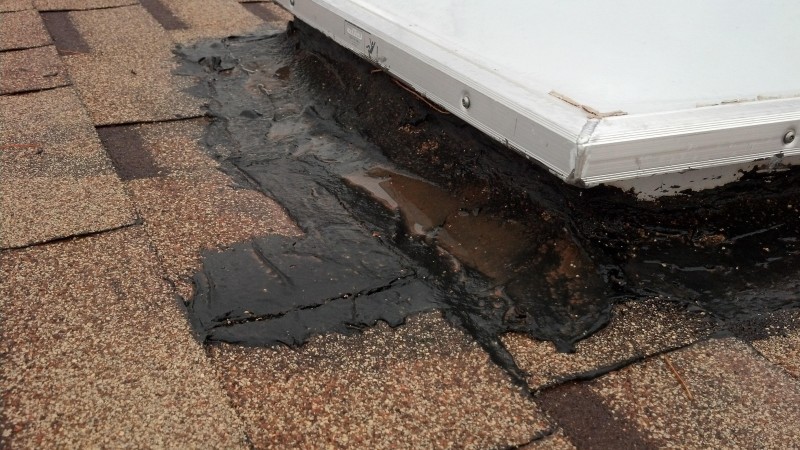
One of the biggest calls for roof leaks I see is for skylight leaks. Why?
We all love the natural light coming into our homes and offices. It is a fact that people perform better when natural light is present. In study after study, it has been proven, that daylighting dramatically improves human performance, in schools, the workplace or just reading a book at home. I have always said “natural light just makes you feel good.”
Why do Skylights leak?
Most of my business for years has been in the steep-slope market. One of the biggest calls for roof leaks I see is for skylight leaks. They can be a really large problem if not installed correctly. DIY’ers think it is an easy job but sometimes it just does get done correctly. I can’t tell you how many times I have been called out to look at a skylight and has been covered with tar to try and stop it from leaking. Above is a picture of how not to fix a leaky skylight. First of all the slope of the roof must be a 4:12 pitch roof or greater for shingles. 2:12 and 3:12 pitches can be shingled with some precautions. Step shingles should be used with an upper and lower flashing when installing a skylight with asphalt shingles, cedar shakes, and cedar shingles. The 4:12 pitch means the roof slope rises 4 inches for every 12 inches across. The roof above with all the tar is about a 1:12 pitch and shingles are not a proper roof covering. I see a lot of this on patio covers which causes dry rot when left leaking and not repaired. The roof covering is wrong and when a skylight hole is made it just makes a mess of things. To the right is a 4:12 pitch roof and an upper and lower curb type flashing has been set in place with step flashings on the side to be woven into the courses of shingles. This is correct. The skylight then is installed on top of the curb, with its flange covering the metals flashings. This roof will never leak, using this application. 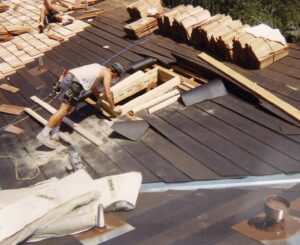
Proper roof flashing is the key for a skylight not to leak.
With different types of roof pitches and style of roofing materials are used, the skylight flashing has to be right for the application or you have the possibility for a leak when a rainstorm hits. When using shingles, shakes and slate type materials, an upper and low saddle with step flashing is the rule of thumb. Tile with a profile uses a lead upper and lower saddle, then a pan flashing down the sides. Low slope roofs can use a solid flashing { no steps } or cant strip at the base of the curb, with the low slope roofing sealed at the corners and rolled up the curb. In most cases a fixed skylight flange will cover the metal or roofing, making a good waterproof skylight.
Have a question? AskARoofer.
Find your local roofing contractor in the RoofersCoffeeShop® Contractor Directory.


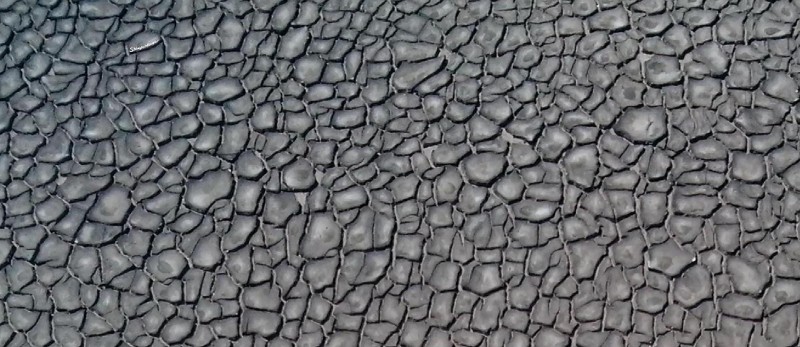



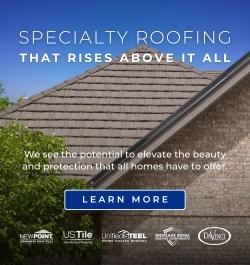
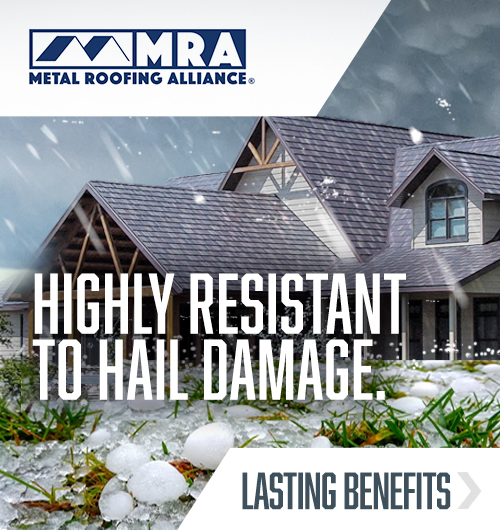

Comments
Leave a Reply
Have an account? Login to leave a comment!
Sign In